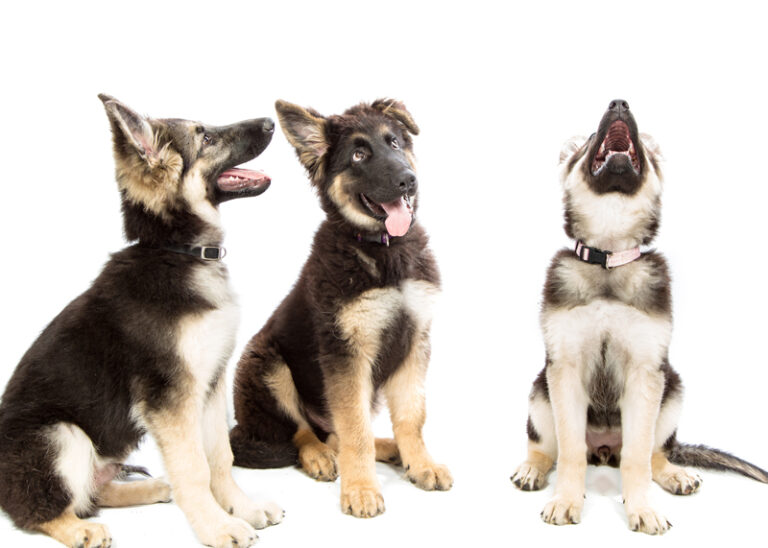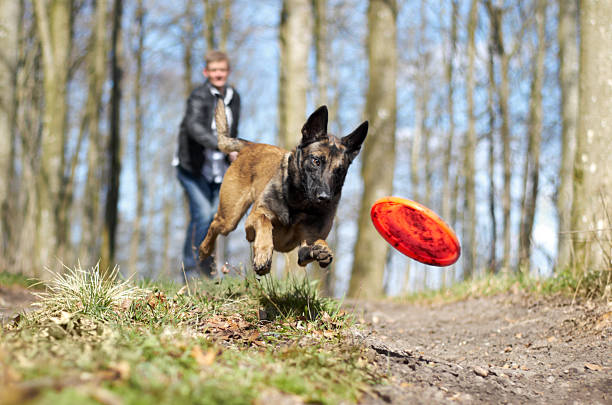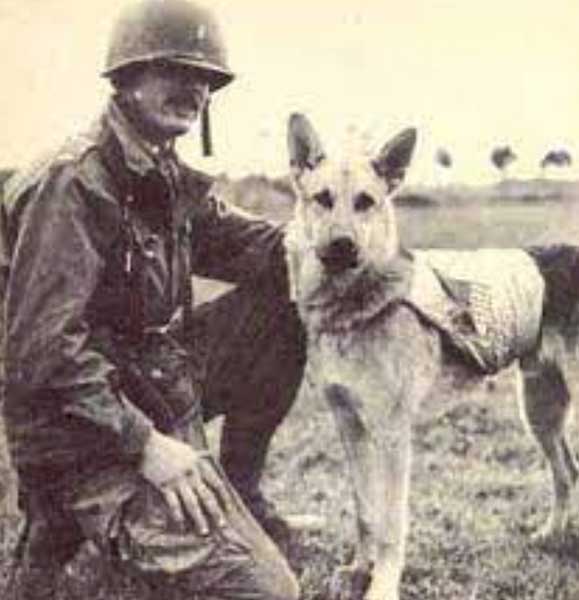German Shepherd Puppies Unleashed: Tips and Advice for Choosing the Best Fit
German Shepherd Puppies: A Wonderful Addition to Your Family
If you’re considering adding a furry friend to your family, a German Shepherd puppy can be an excellent choice. Known for their loyalty, intelligence, and versatility, German Shepherds have been a popular breed for decades. In this section, we will explore why choosing a German Shepherd puppy can be a wonderful addition to your family and highlight some factors to consider before making a decision.
Why Choose a German Shepherd Puppy
There are several reasons why a German Shepherd puppy may be the perfect fit for your family. Here are a few key points to consider:
-
Versatility: German Shepherds are a highly versatile breed. They excel in various activities, including obedience training, agility, search and rescue, and even therapy work. Their intelligence and trainability make them a favorite choice for many working roles.
-
Loyalty and Protective Nature: German Shepherds are known for their loyalty and protective instincts. They form strong bonds with their families and are naturally inclined to protect their loved ones. This makes them excellent companions and potential guard dogs.
-
Family-Oriented: German Shepherds are often great with children and can be wonderful family pets. They are typically patient, gentle, and eager to please. However, it’s important to supervise interactions between young children and puppies to ensure a positive and safe environment for both.
-
Active Lifestyle: German Shepherds are an energetic breed that thrives on physical activity and mental stimulation. If you lead an active lifestyle and enjoy spending time outdoors, a German Shepherd puppy may be the perfect companion for your adventures.
Factors to Consider Before Getting a German Shepherd
Before bringing a German Shepherd puppy into your home, it’s important to consider several factors to ensure a smooth transition and a long-lasting bond. Here are a few things to think about:
-
Space and Living Arrangements: German Shepherds are medium to large-sized dogs and require ample space to move around comfortably. If you live in an apartment or have limited outdoor space, it’s crucial to consider whether you can provide enough exercise and mental stimulation for your furry friend. Check out our article on raising a German Shepherd in an apartment for tips and strategies.
-
Time Commitment: German Shepherds are highly sociable dogs and require plenty of interaction and exercise. They thrive on human companionship and can become bored or anxious if left alone for extended periods. Assess your schedule and lifestyle to ensure you can dedicate enough time and attention to your new puppy.
-
Training and Socialization: German Shepherds are intelligent and eager to please, but they require consistent training and early socialization to become well-rounded adult dogs. Consider whether you have the time and patience to invest in their training needs. Learn more about training challenges and solutions for German Shepherds to prepare yourself for the journey.
-
Grooming and Shedding: German Shepherds have a double coat that requires regular grooming to keep it healthy and to manage shedding. If you or a family member have allergies or prefer a low-shedding breed, a German Shepherd may not be the best choice. Explore our article on dealing with German Shepherd shedding for helpful tips.
By carefully considering these factors, you can determine whether a German Shepherd puppy is the right fit for your family and lifestyle. Remember, owning a puppy is a long-term commitment, so it’s essential to be prepared and fully dedicated to providing a loving and nurturing environment for your new furry family member.
Choosing the Right German Shepherd Puppy
When it comes to choosing a German Shepherd puppy, there are a few key factors to consider to ensure a good fit for both you and the puppy. Understanding your lifestyle and needs, as well as evaluating the puppy’s temperament, can help guide your decision-making process.
Understanding Your Lifestyle and Needs
Before bringing a German Shepherd puppy into your home, it’s important to assess your lifestyle and consider how well it aligns with the needs of this breed. German Shepherds are known for their high energy levels, intelligence, and loyalty. They require daily exercise, mental stimulation, and social interaction.
Consider the following questions:
-
Do you have an active lifestyle that allows for daily exercise and outdoor activities? German Shepherds thrive in environments where they have ample opportunities to burn off energy.
-
Are you committed to providing consistent training and socialization? German Shepherds are intelligent and eager to please, but they require guidance to become well-behaved members of the family.
-
Do you have enough time and resources to devote to grooming and maintenance? German Shepherds have a double coat that sheds seasonally and requires regular brushing to keep their coat healthy.
By honestly evaluating your lifestyle and needs, you can determine if a German Shepherd puppy is the right choice for you. For more information on dealing with German Shepherd shedding and grooming tips, refer to our articles on dealing with German Shepherd shedding and grooming tips for German Shepherd owners.
Evaluating the Puppy’s Temperament
The temperament of a German Shepherd puppy plays a significant role in their suitability for your family and lifestyle. While individual personalities may vary, it’s important to look for certain traits that align with your needs.
Consider the following aspects when evaluating a German Shepherd puppy’s temperament:
-
Socialization: A well-socialized puppy should be curious, friendly, and comfortable around people and other animals. They should exhibit confidence and adaptability in various environments.
-
Energy level: Assess the puppy’s energy level and activity preferences. Some German Shepherd puppies may be more laid-back, while others may be highly energetic. Choose a puppy whose energy level matches what you can provide.
-
Trainability: German Shepherds are known for their trainability and desire to please their owners. Look for a puppy that demonstrates attentiveness, responsiveness, and a willingness to engage in training exercises.
Remember, proper socialization and training are essential for German Shepherds. If you need guidance on training and socializing your German Shepherd puppy, refer to our articles on training challenges and solutions for German Shepherds and socializing German Shepherds: a guide for owners.
By understanding your lifestyle and needs, as well as evaluating the puppy’s temperament, you can make an informed decision when choosing the right German Shepherd puppy for your family. Remember to consider other aspects, such as health and genetic considerations, to ensure a happy and fulfilling relationship with your new furry friend.
Finding a Reputable Breeder
When it comes to bringing a German Shepherd puppy into your life, finding a reputable breeder is essential. A responsible and ethical breeder will ensure that the puppies are healthy, well-cared for, and have a good temperament. In this section, we will discuss the importance of researching and identifying reputable breeders and provide you with a list of questions to ask them.
Researching and Identifying Reputable Breeders
Finding a reputable breeder requires diligent research and careful consideration. Here are some steps to help you identify reputable German Shepherd breeders:
-
Seek Recommendations: Start by asking for recommendations from trusted sources such as local breed clubs, veterinarians, or fellow German Shepherd owners. Their experiences and insights can guide you in the right direction.
-
Check Breed Club Listings: Many reputable breeders are affiliated with German Shepherd breed clubs. Consult the breed club’s website for a list of breeders who adhere to their code of ethics and breeding standards.
-
Review Online Directories: Online directories specific to German Shepherd breeders can provide a comprehensive list of breeders in your area. However, exercise caution and verify the credibility of the breeders before proceeding.
-
Read Reviews and Testimonials: Look for reviews or testimonials from previous buyers to gain a better understanding of the breeder’s reputation and the quality of their puppies.
-
Visit Breeder Websites: Explore the websites of potential breeders to gather information about their breeding practices, the environment in which the puppies are raised, and any health testing they conduct. Reputable breeders are usually transparent about their breeding program.
-
Contact Breeders: Once you have narrowed down your choices, reach out to the breeders and ask further questions about their breeding practices, health guarantees, and the socialization and training provided to the puppies.
By conducting thorough research and vetting potential breeders, you can ensure that you are working with a reputable breeder who prioritizes the health and well-being of their German Shepherd puppies.
Questions to Ask Breeders
As you engage with potential breeders, it’s essential to ask them relevant questions to assess their knowledge, experience, and commitment to breeding healthy and well-adjusted German Shepherd puppies. Here are some important questions to consider:
- How long have you been breeding German Shepherds?
- Are the parents of the puppies available for viewing?
- Have the puppies been socialized?
- What health testing do you perform on the parents?
- Do you provide any health guarantees or warranties?
- What steps do you take to ensure the puppies’ well-being and early development?
- What kind of support do you offer to puppy buyers after they take the puppy home?
- Can you provide references from previous buyers?
- Do you have any specific recommendations for caring for a German Shepherd puppy?
Asking these questions will help you gauge the breeder’s commitment to producing healthy puppies and their willingness to support you throughout the process of bringing a German Shepherd puppy into your home.
Remember, responsible breeders care deeply about the welfare of their puppies and are invested in finding loving homes for them. Take the time to find a reputable breeder who shares your passion for the German Shepherd breed, and you’ll be on your way to finding the perfect furry companion.
Health and Genetic Considerations
When choosing a German Shepherd puppy, it’s important to prioritize their health and genetic background. Ensuring that the puppy comes from a healthy lineage can help reduce the risk of potential health issues in the future. In this section, we will explore the importance of health testing and certifications, as well as common health issues in German Shepherds.
Health Testing and Certifications
Reputable breeders prioritize the health of their German Shepherd puppies and typically conduct various health tests on the parent dogs. These tests help identify any potential genetic disorders or health issues that may be passed down to the offspring. Some common health tests include:
| Health Test | Purpose |
|---|---|
| Hip Dysplasia Evaluation | Assesses the hip joint health to identify the risk of hip dysplasia, a common condition in German Shepherds. |
| Elbow Dysplasia Evaluation | Evaluates the elbow joint for signs of dysplasia, another prevalent condition in the breed. |
| DNA Testing for Genetic Diseases | Identifies genetic mutations associated with specific health conditions, such as degenerative myelopathy or von Willebrand’s disease. |
| Eye Examination | Screens for various eye conditions, including progressive retinal atrophy (PRA) and cataracts. |
| Cardiac Evaluation | Checks for heart abnormalities or conditions like dilated cardiomyopathy. |
Reputable breeders will provide documentation of these health tests and certifications, allowing you to make an informed decision when selecting a German Shepherd puppy. Asking breeders about the health history of the parent dogs and requesting copies of health clearances can help ensure that you are getting a healthy and well-bred puppy. For more information on finding reputable breeders, refer to our article on finding a reputable breeder.
Common Health Issues in German Shepherds
While German Shepherds are generally a healthy breed, they may be prone to certain health issues. Being aware of these conditions can help you take proactive measures to prevent or manage them. Some common health issues in German Shepherds include:
- Hip and Elbow Dysplasia: These conditions involve abnormal development of the hip and elbow joints, leading to pain and mobility issues.
- Degenerative Myelopathy: A progressive neurological disorder that affects the spinal cord, leading to hind limb weakness and paralysis.
- Exocrine Pancreatic Insufficiency (EPI): A condition where the pancreas fails to produce enough digestive enzymes, resulting in poor nutrient absorption.
- Bloat (Gastric Dilatation-Volvulus): A life-threatening condition characterized by the twisting of the stomach, which can restrict blood flow and cause organ damage.
- Allergies: German Shepherds may be prone to allergies, including food allergies, environmental allergies, and skin allergies.
- Cancer: Like many large breeds, German Shepherds have a higher risk of developing certain types of cancer.
While not all German Shepherds will experience these health issues, it’s essential to be aware of their potential and take steps to mitigate the risks. Regular veterinary check-ups, proper nutrition, exercise, and a healthy lifestyle can contribute to the overall well-being of your German Shepherd puppy. For more information on German Shepherd health, refer to our comprehensive article on German Shepherd health guide: common issues and preventive care.
By considering health testing and certifications and being aware of common health issues, you can make an informed decision when choosing a German Shepherd puppy. Remember to consult with a veterinarian for personalized advice on maintaining the health and well-being of your German Shepherd throughout their life.
Training and Socialization
Training and socialization are key aspects of raising a well-behaved and balanced German Shepherd puppy. Early training and socialization are particularly important for this intelligent and energetic breed. In this section, we will discuss the importance of early training and socialization and provide tips to help you train and socialize your German Shepherd puppy effectively.
Importance of Early Training and Socialization
Early training and socialization play a vital role in shaping the behavior and temperament of your German Shepherd puppy. During the first few months of their life, puppies are highly receptive to learning and experiences. By exposing them to various people, animals, environments, and situations, you can help them develop into confident, well-adjusted adult dogs.
Proper training ensures that your German Shepherd understands basic commands, such as sit, stay, come, and down. It also helps establish boundaries and teaches them good manners. Training sessions should be consistent, positive, and reward-based, using treats, praise, and toys as motivation. You can find more information on training challenges and solutions for German Shepherds in our article on training challenges and solutions for German Shepherds.
Socialization involves exposing your German Shepherd puppy to different people, animals, and environments in a positive and controlled manner. This helps them become comfortable and confident in various situations, reducing the likelihood of fear or aggression later in life. Regular socialization outings to parks, pet-friendly stores, and puppy classes can provide valuable opportunities for your puppy to interact with others. Check out our article on socializing German Shepherds: a guide for owners for more detailed information on the socialization process.
Tips for Training and Socializing Your German Shepherd Puppy
-
Start early: Begin training and socialization as soon as you bring your German Shepherd puppy home. The critical socialization period typically lasts until around 16 weeks of age.
-
Be positive and consistent: Use positive reinforcement techniques, such as treats, praise, and play, to reward desired behaviors. Consistency is key to ensure your puppy understands what is expected of them.
-
Enroll in puppy classes: Puppy classes provide a structured environment for socialization and basic obedience training. They also offer guidance from experienced trainers.
-
Expose to various environments: Introduce your puppy to different environments, including parks, busy streets, and different types of flooring, to help them feel comfortable and confident in various settings.
-
Introduce different people and animals: Expose your puppy to people of different ages, sizes, and appearances, as well as other well-behaved dogs, to promote positive social interactions.
-
Gradually increase exposure: Start with low-stress environments and gradually expose your puppy to more challenging situations. Monitor their reactions and provide reassurance and positive reinforcement as needed.
-
Practice obedience commands: Teach basic obedience commands, such as sit, stay, come, and leave it, using positive reinforcement. Consistent practice will help your puppy develop good manners and respond reliably.
Remember, training and socialization should be an ongoing process throughout your German Shepherd’s life. Continued training and exposure to new experiences will help maintain their skills and keep them well-rounded. Enjoy this journey with your German Shepherd puppy and celebrate their progress along the way.






